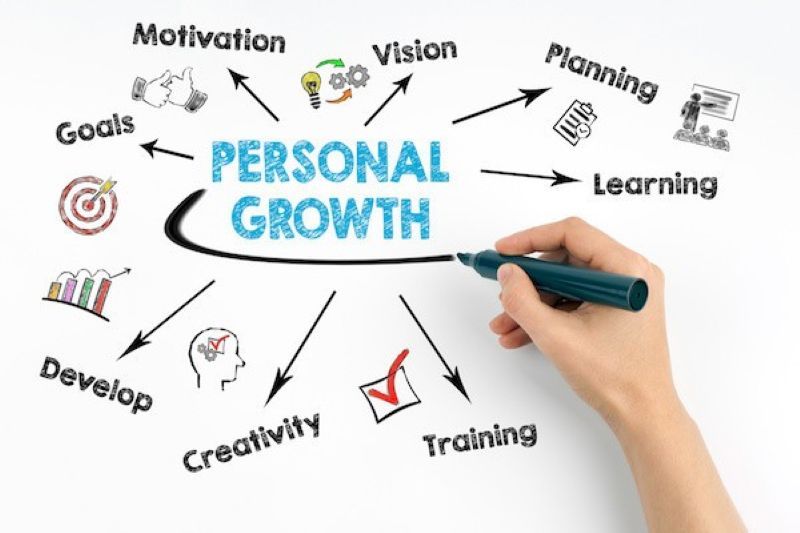

Let's explore this topic in more detail with Tic Tac Toe below. Creating a personal growth plan is an essential step towards achieving your goals and becoming the best version of yourself. By developing a structured approach to self-improvement, you can focus your efforts on the areas that matter most to you and make steady progress towards your aspirations.
Personal growth is a lifelong journey that involves continuous self-improvement and development. It encompasses various aspects of life, including career advancement, skill acquisition, emotional intelligence, and overall well-being. By actively engaging in personal growth, you can enhance your quality of life, boost your confidence, and unlock your full potential.
One of the key benefits of personal growth is increased self-awareness. As you embark on this journey, you'll gain a deeper understanding of your strengths, weaknesses, values, and aspirations. This self-knowledge serves as a foundation for making informed decisions and setting meaningful goals that align with your authentic self.
Moreover, personal growth fosters resilience and adaptability. In today's rapidly changing world, the ability to learn, unlearn, and relearn is crucial for success. By cultivating a growth mindset and embracing continuous improvement, you'll be better equipped to navigate challenges and seize opportunities as they arise.
Another significant advantage of personal growth is its positive impact on relationships. As you work on yourself, you'll develop better communication skills, empathy, and emotional intelligence. These qualities not only enhance your personal relationships but also contribute to your professional success by improving your ability to collaborate and lead effectively.
Read more: How to Build Self-Discipline and Stay Motivated
Creating a personal growth plan that works requires careful consideration of several key components. By incorporating these elements into your plan, you'll increase your chances of success and maintain motivation throughout your journey.
The first step in crafting an effective personal growth plan is conducting a thorough self-assessment. This involves reflecting on your current situation, identifying areas for improvement, and clarifying your long-term aspirations. Start by asking yourself thought-provoking questions such as:
. What are my core values and beliefs?
. What are my strengths and weaknesses?
. What skills or knowledge do I need to acquire to reach my goals?
. Where do I see myself in five or ten years?
Based on your self-assessment, set specific, measurable, achievable, relevant, and time-bound (SMART) goals. These goals should challenge you while remaining realistic and aligned with your values and long-term vision. Remember to set both short-term and long-term goals to maintain momentum and track your progress effectively.
Once you've established your goals, it's time to develop actionable plans and strategies to achieve them. Break down each goal into smaller, manageable tasks and create a timeline for their completion. This approach helps prevent overwhelm and allows you to make steady progress towards your objectives.
Consider utilizing various personal growth strategies, such as:
. Continuous learning: Engage in courses, workshops, or educational programs to acquire new skills and knowledge.
. Habit formation: Identify and cultivate positive habits that support your goals while working to eliminate detrimental ones.
. Mindfulness practices: Incorporate meditation, journaling, or other mindfulness techniques to enhance self-awareness and emotional regulation.
. Networking and mentorship: Seek guidance from experienced individuals in your field and build meaningful connections with like-minded peers.
. Experimentation and risk-taking: Step out of your comfort zone and embrace new experiences to broaden your perspective and foster personal growth.
To ensure the success of your personal growth plan, establish accountability measures and regularly track your progress. Consider finding an accountability partner or joining a support group to share your goals and receive encouragement and feedback. This external support can help you stay motivated and committed to your plan, even during challenging times.
Implement a system for tracking your progress, such as maintaining a journal, using a goal-tracking app, or creating a visual representation of your achievements. Regularly review and assess your progress, celebrating milestones and adjusting your plan as needed. This ongoing evaluation allows you to stay flexible and adapt your strategies based on your experiences and changing circumstances.
As you embark on your personal growth journey, it's essential to anticipate and prepare for potential obstacles. By developing strategies to overcome challenges and maintain motivation, you'll be better equipped to stay on track and achieve your goals.
Limiting beliefs are deeply ingrained thoughts or assumptions that hold you back from reaching your full potential. These beliefs often stem from past experiences, societal conditioning, or self-doubt. To overcome them, start by identifying the negative thoughts that arise when you think about your goals or personal growth journey.
Once you've recognized your limiting beliefs, challenge them by seeking evidence that contradicts these thoughts. Replace negative self-talk with positive affirmations and empowering statements. Surround yourself with supportive people who believe in your potential and can help you reframe your thinking.
Consider working with a therapist or life coach to address deeply rooted limiting beliefs and develop effective strategies for overcoming them. Remember that changing your mindset is a gradual process that requires patience and persistence.
Read more: The Power of Positive Thinking: Change Your Mindset Today
Resilience is a crucial trait for personal growth, as it enables you to bounce back from setbacks and persevere in the face of challenges. To build resilience, focus on developing a growth mindset that views obstacles as opportunities for learning and improvement rather than insurmountable barriers.
Embrace failure as a natural part of the growth process. Instead of viewing setbacks as personal shortcomings, reframe them as valuable learning experiences. Analyze your failures objectively, identifying lessons learned and areas for improvement. Use this knowledge to refine your approach and strategies moving forward.
Practice self-compassion when faced with difficulties or setbacks. Treat yourself with kindness and understanding, acknowledging that personal growth is a journey with ups and downs. By cultivating self-compassion, you'll be better equipped to navigate challenges without losing motivation or becoming overly self-critical.
Sustaining motivation over the long term can be challenging, especially when progress feels slow or obstacles arise. To maintain your drive and enthusiasm, implement the following strategies:
. Revisit your "why": Regularly remind yourself of the reasons behind your personal growth goals and the benefits you'll gain from achieving them.
. Celebrate small wins: Acknowledge and reward yourself for incremental progress, no matter how small. This positive reinforcement helps maintain momentum and boosts motivation.
. Visualize success: Create a vivid mental image of yourself achieving your goals and experiencing the positive outcomes of your personal growth journey.
. Find inspiration: Seek out motivational content, such as books, podcasts, or talks by individuals who have achieved similar goals or overcome comparable challenges.
. Practice gratitude: Cultivate a mindset of appreciation for your progress and the opportunities for growth in your life. This positive outlook can help you stay motivated during difficult times.
. Connect with like-minded individuals: Surround yourself with people who share similar goals or are on their own personal growth journeys. Their support and encouragement can help you stay motivated and accountable.
For your personal growth plan to be truly effective, it's essential to integrate it into your daily life. By making personal development a consistent part of your routine, you'll create lasting change and achieve sustainable results.
Your environment plays a crucial role in supporting or hindering your personal growth efforts. Take steps to create a physical and social environment that aligns with your goals and values. This may involve:
. Decluttering your living space to promote focus and productivity
. Surrounding yourself with inspiring books, artwork, or quotes that remind you of your goals
. Limiting exposure to negative influences, such as toxic relationships or excessive social media use
. Seeking out communities or groups that share your interests and support your growth journey
Consider implementing environmental cues that prompt you to engage in personal growth activities. For example, place your journal or meditation cushion in a visible location to remind you of your daily practice, or set up a dedicated workspace for learning and skill development.
Incorporate personal growth activities into your daily routine by establishing rituals and habits that support your goals. Start small and gradually build up to more significant commitments. Some examples of daily rituals that promote personal growth include:
. Morning mindfulness practice: Begin each day with meditation, journaling, or gratitude exercises to set a positive tone and enhance self-awareness.
. Learning blocks: Dedicate specific time slots for skill development or knowledge acquisition, such as reading, online courses, or practicing a new language.